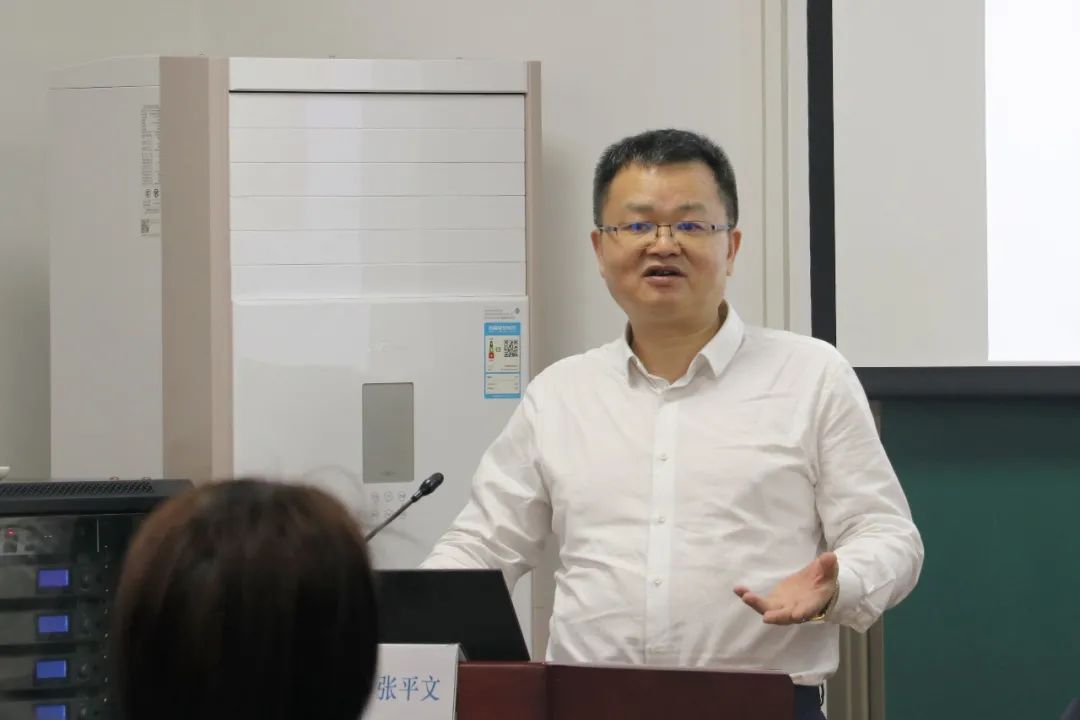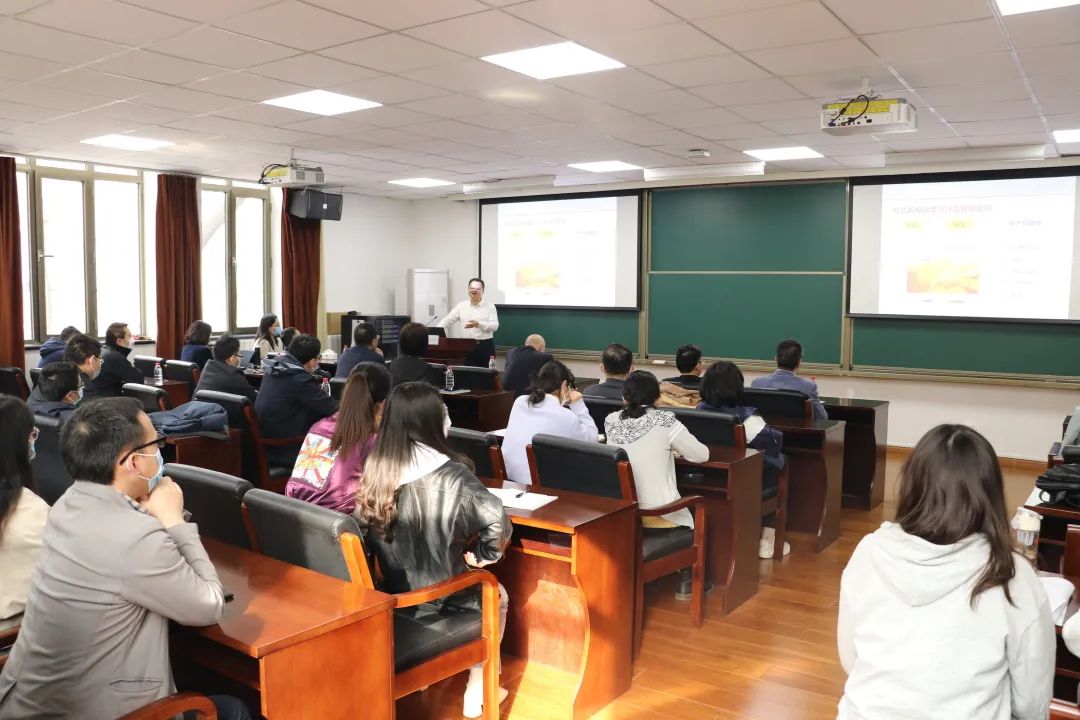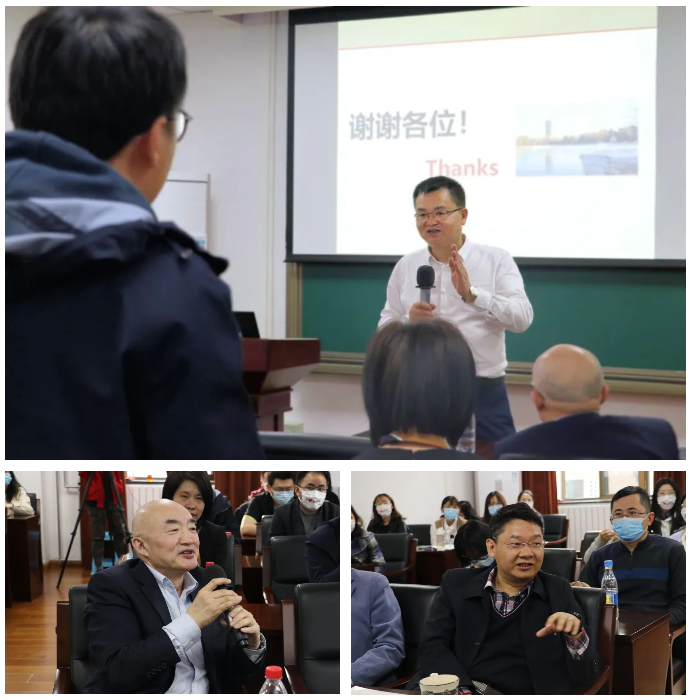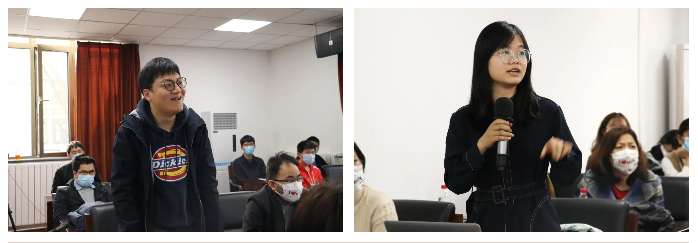
“Can numerical models solve the problem of weather forecast?” On the afternoon of March 25th, Zhang Pingwen, an academician of the Chinese Academy of Sciences, member of the Standing Committee of the Party Committee and vice president of Peking University, visited the School of Mathematics and gave a speech. He used the question to introduce the application of artificial intelligence technology in the current weather forecast.
Zhang pingwen started with the limits of the model. Numerical model is one of the most important means of weather forecast, which is composed of model (atmospheric dynamic system) and computable modeling module. Taking the temperature forecast of Winter Olympic Games area and the weather forecast of special scenes as examples, he explained the limitations of the numerical model in the actual weather forecast. At the same time, solving the problem of weather forecast also brought many new concepts to mathematics, such as chaos.
In actual forecast, model forecast data should be combined with the actual observation data from radar, satellite, weather station, aviation and other channels, and the forecast results should be determined through the weather consultation participated by experts. “Our research goal is to use algorithms to merge information and data, and replace or even surpass weather consultation through machine learning post-processing.” Zhang pingwen introduced model post-processing, an indispensable link in weather forecast. Based on the purpose of serving the 2022 Beijing Winter Olympic Games, he shared a large number of research cases on the forecast of temperature, relative humidity, wind speed and wind direction of the stations in Winter Olympic Games sites, showing significant advantages in temperature forecast.

Finally, he introduced the differences between machine learning post-processing and statistical post-processing, as well as the trade-off between weak mechanism and accuracy. In the interactive part, Zhang pingwen answered some specific questions, such as the prediction of climate by artificial intelligence, the optimization of empirical parameters by machine learning, and the combination of community weather forecast and urban model. In view of the advantages of traditional computing mathematics and suggestions on data resource acquisition, Zhang pingwen shared his views on learning and research planning for young scholars. In his opinion, choosing a topic is very important for any study, and it often depends on personal goals and values. Simplicity and beauty are the common values of mathematics and physics, and doing cross-research to solve practical problems also has the fun of "landing".

What kind of person you want to be determines what kind of learning you can do. The research one does can reflect the likes and dislikes of him/her. Zhang pingwen's report reveals his love for the beauty of algorithm and mathematics, which inspires young people to make their own choice between exploring the beauty of mathematics and solving practical problems.





